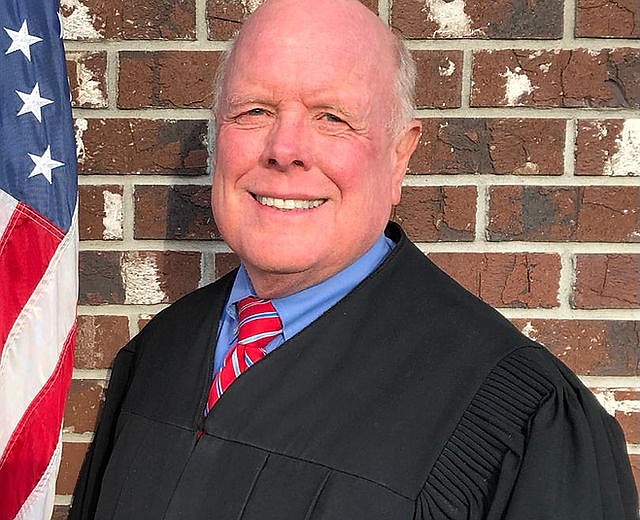You be the judge
Kootenai County voters can cast a ballot in the First District’s only contested judicial race, regardless of their political affiliation.
Incumbent Judge Rich Christensen and challenger Stanley Mortensen are vying for a seat in Idaho’s First Judicial District, which is comprised of the five northern counties.
The race is nonpartisan. That means it will be included on all ballots.
Former Idaho Gov. Butch Otter appointed Christensen to the bench in 2013. A Coeur d’Alene resident, he has been the administrative district judge for three years, after being selected by peer vote.
After Christensen graduated from the University of Idaho College of Law, he was elected prosecutor in Boise County.
He later served as the Idaho Deputy Attorney General, prosecuting drug crimes throughout the state.
Christensen and his wife raised their children on a Christmas tree farm in Benewah County, where he served as the county’s elected prosecutor.
He also spent more than 25 years in private practice, with experience in business, criminal defense, real property, municipal, education and family law.
Mortensen, of Post Falls, is a Kootenai County prosecutor who got his start as a detention deputy with the Kootenai County Sheriff’s Office.
While working for KCSO, he graduated from North Idaho College and Lewis-Clark State College. He became a patrol deputy before leaving law enforcement to enter law school.
Mortensen said the career change came from a desire to make a difference and have more influence in his community.
Now, after almost a decade as a prosecutor, he said he wants to take the next step.
“You only have so much influence as a prosecutor,” he said. “The judge gets the final say.”
Mortensen said voters should support him because he’s committed to the rule of law.
“I’m going to follow the Constitution,” he said. “I’m going to follow the laws of Idaho.”
He said he believes the Idaho Supreme Court violated the constitutional rights of Idahoans when it issued emergency orders pausing jury trials in counties where the COVID-19 positivity rate passed a certain threshold.
“I don’t know that Judge Christensen did anything to influence the Supreme Court not to do that,” Mortensen said.
Idaho has a unified court system. That means the Supreme Court establishes statewide rules and policies for the district courts.
“It was necessary to follow the orders of the Supreme Court,” Christensen said. “A judge’s job is to follow the rule of law.”
When determining a sentence, judges consider four factors.
“It is always our first duty to protect the public,” Christensen said.
The other factors of sentencing are rehabilitation, deterrence and punishment. Judges must also look to precedent and abide by certain rules.
“Our work is not creative,” Christensen said. “It’s circumscribed by law.”
Christensen said he doesn’t approach sentencing in terms of being “soft” or “hard” on crime, because each case is unique. He applies the law to facts before him.
Mortensen said he’s prosecuted cases where he asked Christensen to send defendants to prison and Christensen instead placed them on probation or a rider program.
“I don’t think some people stay in prison as long as they should,” Mortensen said.
As a judge, Mortensen said he’d advocate for a specialty court for veterans.
“We spend tax dollars and court resources on people with mental illnesses, people who beat their spouses, people who drive drunk and people who use drugs,” he said.
The county’s specialty courts — Mental Health Court, Domestic Violence Court and DUI Court and Drug Court — are intensive programs that aim to reduce recidivism and rehabilitate offenders.
Mortensen said he believes veterans who would otherwise be assigned to an existing specialty court would be better served by a separate court.
Christensen said his experience is his greatest asset, especially his time in private practice, where he represented people from all walks of life.
“I represented loggers and truck drivers, mill workers and mill owners, mom and pop businesses,” he said. “It was that experience of representing real people that I came to know the importance of our legal system.”
He encouraged voters to participate in the judicial election, even if they’re unaffiliated. Though the upcoming election is a primary, all voters can cast a ballot in the nonpartisan race.
“They have the right to exercise their vote without being affiliated with any political party,” Christensen said.
The primary election is May 17.



